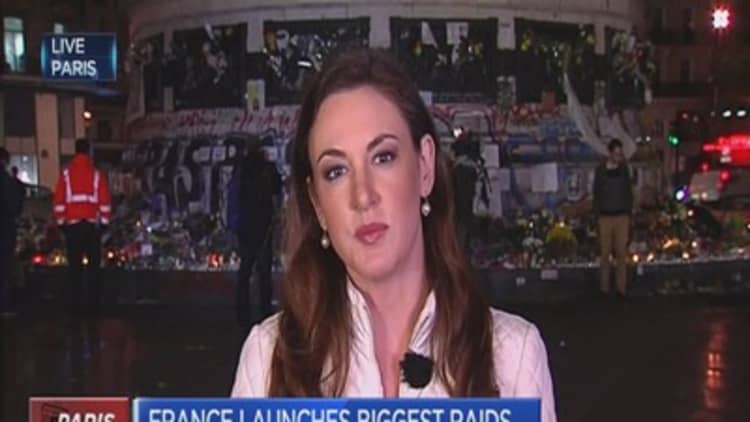
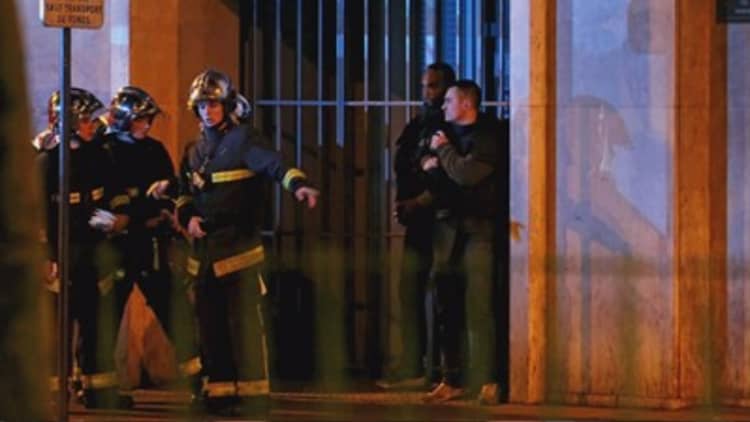
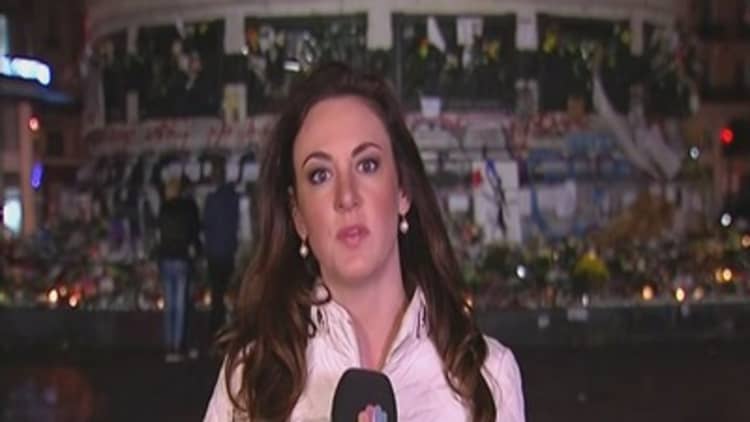
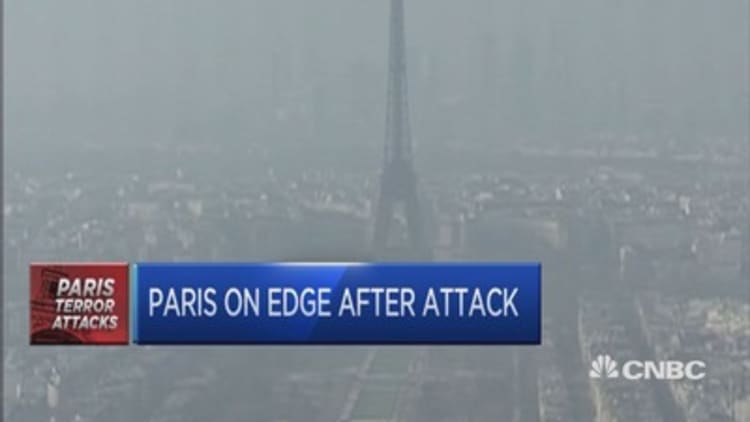
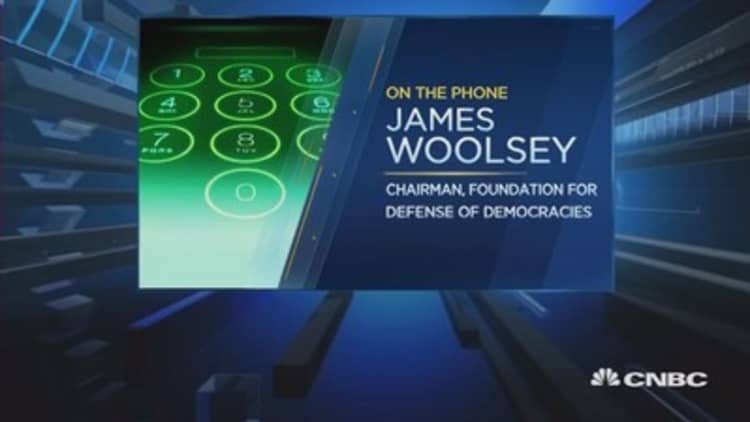
The weekend's terrorist attacks in Paris by the so-called Islamic State have raised new questions over the group's capabilities and its threat to global security.
On Friday evening, a group of Islamist terrorists targeted Parisians in a series of coordinated gun and bomb attacks. Bars and restaurants, a concert hall and the Stade de France were the site of shootings and explosions in which most of the attackers detonated suicide belts.
The attacks left 129 dead and hundreds injured.
Speaking to French radio station RTL Monday, French Prime Minister Manuel Valls said French intelligence services had prevented several terrorist attacks since the summer and that police knew other attacks were being prepared in France as well as in the rest of Europe. He added that 150 raids had been carried out across France since Friday night.
Analysts are viewing the attacks as a "game-changer" for Europe as the Islamist group, which holds swaths of territory in Syria and Iraq, has shown itself to be able to conduct a well-planned attack so far from its base.
Game-changer
The Paris attacks show that the Islamic State is stepping up its global activities, analysts say.
"The 13 November terrorist attacks in Paris appear to mark a major change of strategy by Islamic State, now determined to, and seemingly capable of, carrying the fight against 'the enemy' beyond its self-proclaimed caliphate and its immediate neighborhood," Alastair Newton, head of Alavan Business Advisory, said in a note Monday.
"Previously, the general consensus was that, although al Qa'ida (AQ) is committed to 'exporting' terrorism, IS was focused purely on its caliphate and the immediate neighborhood," Newton, a former senior political analyst at Nomura, added.
All in all, Newton said, the attacks appeared to amount to "a quantum jump in the geographical spread of the threat posed directly by IS' central command, rather than just its affiliates and sympathizers."
France responded at the weekend by launching airstrikes against IS targets in Syria and a manhunt has begun in Europe for men suspected of aiding the attackers, who are believed to have been based in Belgium and helped by French accomplices.
France's President Francois Hollande vowed a "pitiless" response to the attacks but they have surely damaged confidence among the leadership coming 10 months after an attack on the offices of French satirical magazine Charlie Hebdo and a several smaller "lone wolf" suspected Islamist attacks in France.
'Theater of war'
Europe has been a target on foreign soil, too, with tourists from the region targeted in attacks in northern African countries, such as Egypt and Tunisia. A fortnight ago, IS also claimed to have been behind the downing of a Russian plane over the Sinai desert in Egypt. All the attacks have been claimed to be in retaliation for Western airstrikes against IS in Syria and Iraq.
Now, Europe was being drawn into IS' "theater of war," according to Tina Fordham, managing director and chief global political analyst at Citi, who said the latest Paris attacks marked a "turning point with global implications."
"Such a series of successful attacks on targets aligned with countries at war with IS in Syria suggests a new front in the conflict, with IS moving beyond fighting in Syria and Iraq to extending the theater of war beyond its "caliphate."
"The Charlie Hebdo attack prompted widespread solidarity, yet little broader change in European or U.S. strategy toward countering terrorism or addressing the conflict in the Middle East. We think this time is different, and signals that IS has changed its strategy," Fordham said in a note Monday.
"With this in mind, we have upgraded the risk of terrorist attacks not only in the Middle East but also in the West, as well as the likelihood of increased international military intervention in IS strongholds in Syria, Iraq and Libya."
Fordham believed the attacks had a range of security and political implications, including serving as a catalyst for other nations to join the U.S., France and Russia in launching air strikes against IS positions.
No stranger to terror
Of course, Europe is no stranger to Islamist terrorist attacks and it has recovered before after such attacks, increasing surveillance and security measures in the process. From the 2004 Madrid train bombings, believed to have been carried out by an al-Qaeda-inspired terrorist cell, to the 2005 bombing in London, the macroeconomic impact of these previous attacks have tended to be limited.
If the latest Paris attack heralded the start of a "sustained campaign," however, things could change rapidly in the region, according to JPMorgan analysts Malcolm Barr and David Mackie.
"As long as the Paris attacks are not the start of a sustained campaign, our judgment is that the macroeconomic consequences will be limited and short-lived," the analysts said in a note Monday.
"Events in Paris may influence other difficult issues in the region, such as managing migration flows and the Brexit debate in the UK. But, assuming it is a one-off, these effects would likely be modest. Of course, if the Paris attacks are the beginning of a sustained campaign, the macroeconomic consequences would be much more significant."
- By CNBC's Holly Ellyatt, follow her on Twitter @HollyEllyatt. Follow us on Twitter: @CNBCWorld




